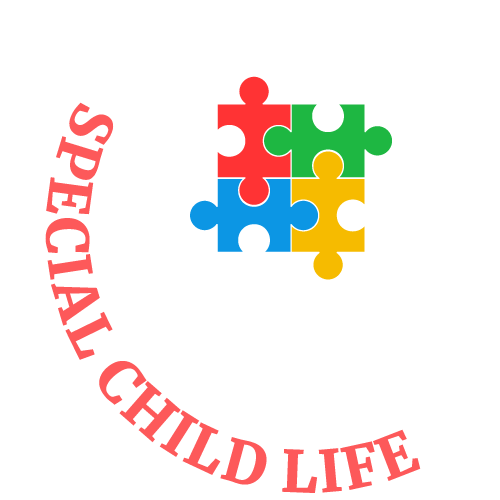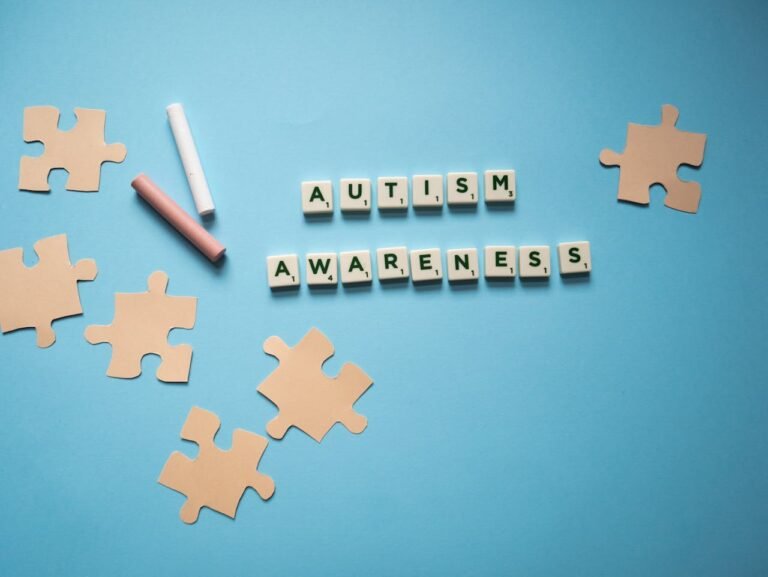One of the mysteries is that the causes of Intellectual Disabilities require each person’s involvement and deserve review, understanding, and support. Intellectual disabilities impact how humans do their studies and comprehend things. Understanding this is important, for then it makes us tender-hearted and more useful toward folks who need assessment.
If ordinary things like reading, math, or speaking have been harder for someone you recognize, that is what it’ll be like for humans with highbrow Causes of Intellectual Disabilities. Different challenges range from moderate to extremely important and affect how people research, resolve troubles, and communicate.
Understanding highbrow disabilities makes us better peers, classmates, and buddies. So, let us study the reasons for incapacity, how it affects people’s lives, and what we will do to assist one another. Intellectual Disabilities in Special Children can have various causes spanning the maximum developmental ranges of existence. Knowing the reasons for these is essential for both prevention and intervention techniques.
Genetic Factors
Of those, massive roles are determined by way of genetic factors in intellectual disabilities. These encirclements:
- Inherited Conditions: The effect of genetic mutation or abnormality could also be surpassed by the oldsters to their kids and affect cognitive development.
- Chromosomal Abnormalities: For example, Down syndrome (Trisomy 21) results from more genetic material or a lack of chromosomes.
Prenatal Influences
Quite loads of things current at some stage in being pregnant may have an impact on the development of intellectual disability. These consist of:
- Maternal Health: Poor maternal nutrients, contamination, and substance abuse can affect fetal brain development.
- Prenatal Exposure: Exposure to pollutants, alcohol, or medicinal pills at some stage in pregnancy can bring about cognitive impairments.
Perinatal Causes
Factors taking region across the time of transport can contribute to the causes of Intellectual Disabilities:
- Complications during Pregnancy: Oxygen deprivation or trauma all the way through starting can cause approximately brain damage affecting cognitive talents.
- Premature Delivery: Babies born prematurely might experience developmental delays due to unfinished mind development.
Postnatal Factors
Events that arise subconsciously can also affect one’s higher-order functioning, leading to the causes of Intellectual Disabilities.
- Brain Injury: any injury to the brain can also cause harm to the mind, which, in turn, affects their cognitive abilities.
- Infections and Diseases: Certain types of infections, including meningitis or sickness that assaults the mind, may additionally render one intellectually disabled.
With this understanding of reasons, healthcare professionals will be aware of the hazard elements early on and be organized for preventive measures and efficient intervention at any existing factor to assist those with intellectual disabilities.
Types and Classifications
Intellectual disabilities differ in degree and extent and are categorized into numerous types based on cognitive functioning and adaptive behavior.
Mild, Moderate, Severe & Profound Causes of Intellectual Disabilities
Mild Intellectual Disability
- The person commonly has IQ ratings from 50 to 70.
- They may take a look at educational talents to approximately a 6th-grade diploma.
- With help, they might regularly live independently and carry out their daily living duties.
Moderate Intellectual Disability
- IQ ratings vary from 35 to 50.
- They can view educational capabilities up to second-grade diplomas.
- They regularly require help for daily sports activities and benefit from established environments.
Severe Intellectual Disability
- IQ ratings vary from 20 to 35.Individuals might also have restricted speech and communication skills
- .
- They require tons of assistance for day-by-day residing and may gain from specialized care.
Profound Intellectual Disability
- IQ ratings are below 20.
- Individuals have minimal or no speech and extreme impairments in motor and sensory abilities.
- They require in-depth assistance and support at one or different points in their lives.
Specific Learning Disabilities
Specific Learning Disabilities (SLD)
- Primarily damage particular academic aptitudes, including reading, writing, or mathematics.
- A man or woman with SLD may additionally have everyday or above-average intelligence in non-academic fields as well.
Global Intellectual Disabilities
- Damage fashionable cognitive functioning and adaptive conduct in various domains.
- These disabilities substantially impact cognitive skills, except in reasoning, problem-solving, and adaptive capacities.
Understanding those classifications allows lecturers, healthcare specialists, and households to adapt interventions and support techniques to fulfill the character needs of people with intellectual disabilities.
Signs and Symptoms of Intellectual Disabilities
Identifying the signs and symptoms of intellectual disabilities is important for early intervention and help.
Developmental Milestones and Delays
Early Child Development
- Delayed attainment of developmental milestones, for example, sitting up, crawling, walking, and speaking.
- Slow development of speech and language abilities and abilities compared to equal-age peers.
School-Age Development
- Problem with mastering skills like reading, writing, and arithmetic.
- The issue with obtaining and applying expertise and requirements is similar to age.
Deficit in Cognitive and Adaptive Functioning
Intellectual Functioning
- Difficulty with reasoning, hassle-fixin,g and abstract questioning
- Unable to realize problematic thoughts and instructions.
Adaptive Skills
- Difficulty with adaptive conduct, together with self-care, communication, and social relationships.
- They require considerable assistance for day-by-day residing activities beyond what’s normal for their age.
Behavioral and Social Indicators
Behavioral Challenges
- Behavioral problems consist of impulsivity or problems with coping with one’s emotions or repetitive behaviors.
- Sensitivities to modifications in activities or environments.
Social Relationships
- Difficulty beginning or keeping friendships.
- Difficulty understanding social cues, norms, and expectations.
Recognizing those signs and symptoms permits dads and moms, educators, and healthcare experts to initiate assessments and interventions early, improving the quality of life and effects for people with intellectual disabilities.
Diagnosis and Assessment of Intellectual Disabilities
Diagnosing high-brow disabilities includes screening, evaluation, and mental checking done by healthcare professionals.
Screening and Evaluation Processes
Early Screening
- Identification of improvement is delayed at recurring pediatric visits.
- Use of standardized developmental screening equipment, including the Ages and Stages Questionnaire or the Denver Developmental Screening Test.
Comprehensive Evaluation
- Detailed assessment of cognitive abilities, adaptive conduct, and developmental history.
- Assessment of speech and language talents, motor skills, and socioemotional improvement.
Role of Healthcare Professionals and Specialists
Pediatricians and Primary Care Providers
- Initial screening and referral for added evaluation.
- Monitoring boom and improvement; early identification of the signs and symptoms of intellectual disabilities.
Professionals Involved
- Psychologists: Conduct mental examinations, IQ trying out, and behavioral critiques.
- Speech-Language Pathologists: Assess communication abilities and Language Development.
- Occupational Therapists: Evaluate motor abilities, sensory processing, and activities of daily dwelling.
Psychological Testing and Assessments
IQ Testing
- Administration of standardized intelligence exams, like the Wechsler Intelligence Scale for Children (WISC) or Stanford-Binet Intelligence Scales.
- Assessing cognitive talents in domains like Verbal Comprehension, Perceptual Reasoning, Working Memory, and Processing Speed.
Behavioral and Adaptive Assessments
- Evaluating adaptive talents using tools, including Vineland Adaptive Behavior Scales or Adaptive Behavior Assessment System, ABAS.
- Assessing social competencies, self-care competencies, and practical independence.
Diagnosis and assessment entail a multi-disciplinary method, which guarantees suitable identification of intellectual disabilities and personal planning for interventions and help.

Treatment and Interventions for Intellectual Disabilities
Effective remedies and interventions for intellectual disabilities focus on enhancing skills, promoting independence, and enhancing the quality of life.
Educational Strategies and Individualized Education Plans (IEPs)
Individualized Education Plan (IEP)
- Formulation of individualized instructional desires and strategies by way of the use of the strengths and weaknesses.
- Notes between educators, mother and father, and experts in guiding academic development and information improvement.
Special Education Services
- Provision for special training, resorts, and adjustments based truly on the child’s getting-to-know-you profile.
- License to make use of assistive generation and adaptive equipment for studying.
Medical Management and Supportive Therapies
Medications
- Medications to govern co-occurring situations, such as attention-deficit/hyperactivity disorder symptoms that possibly can cause ADHD or anxiety problems.
- Monitoring of medication to deal with specific signs and enhance general functioning.
Supportive Therapies
- Admission to counseling and psychotherapy for managing emotional and behavioral issues.
- Family treatment and help organizations provide statistics, education, and emotional assistance to caregivers.
Effective treatment includes an interdisciplinary technique that consists of academic and therapeutic, as well as clinical interventions to manage the distinct desires of those with highbrow Causes of Intellectual Disabilities.
Living with Intellectual Disabilities
The everyday existence enjoyed by those living with intellectual disability is one of coping with several difficult conditions while receiving crucial support and advocating for rights and inclusion.
Lifestyle Problems and Adaptations
Independent Living Skills
- Trouble in executing activities of everyday living, organized by ADLs, which include cooking, cleaning, and personal hygiene.
- Use of assistive devices and adaptive generation to sell independence.
Social Interactions
- In statistics on social cues, friendship formation, and relationship preservation.
- Social competencies training and sports that foster interactions.
Support Systems and Resources
Family and Caregiver Support
- Family members provide emotional help, guidance, and practical help.
- Respite care offerings help caregivers, thus rendering sustained care.
Community Services
- Community-based services usage consists of day packages, vocational education, and leisure activities.
- Community agency participation and aid companies that provide services to people with disabilities and their immediate families.
Advocacy & Rights
Legal Rights and Protections
- Crook protections are under the Disability Rights Law, for example, the Americans with Disabilities Act and the Individuals with Disabilities Education Act.
- Equitable access to education, employment possibilities, and the public.
Self-Advocacy Assistances
- Enabling people with highbrow disabilities to express their desires, picks, and rights.
- Educating self-dedication and selection-making abilities to uphold self-reliance and autonomy.
With the Causes of Intellectual Disabilities, supportive surroundings, the right to access resources, and advocacy are important to ensure that men or women can live meaningful lives and actively participate in their communities.
Finally
Knowing about highbrow disabilities is essential for several reasons. First, it allows for the creation of empathy and inclusiveness within corporations and establishes a functioning, nondiscriminatory environment. Second, early detection and remedy may be essential to improving outcomes and reaching full capability. Third, understanding highbrow disabilities enables breaking down stereotypes and myths, promoting a more numerous society. You can share your story with us.
Defining, scoping, and giving significance to highbrow disabilities allows individuals and groups to be of greater assistance and help, promote the advocacy desired with the aid of the ones affected, ensure equality in opportunities, and display a suitable quality of life.



